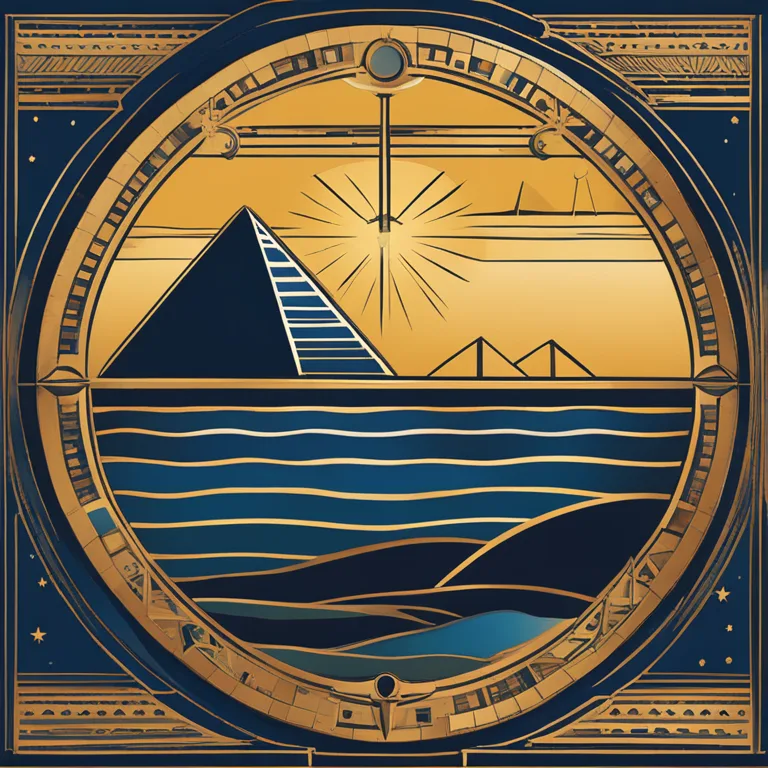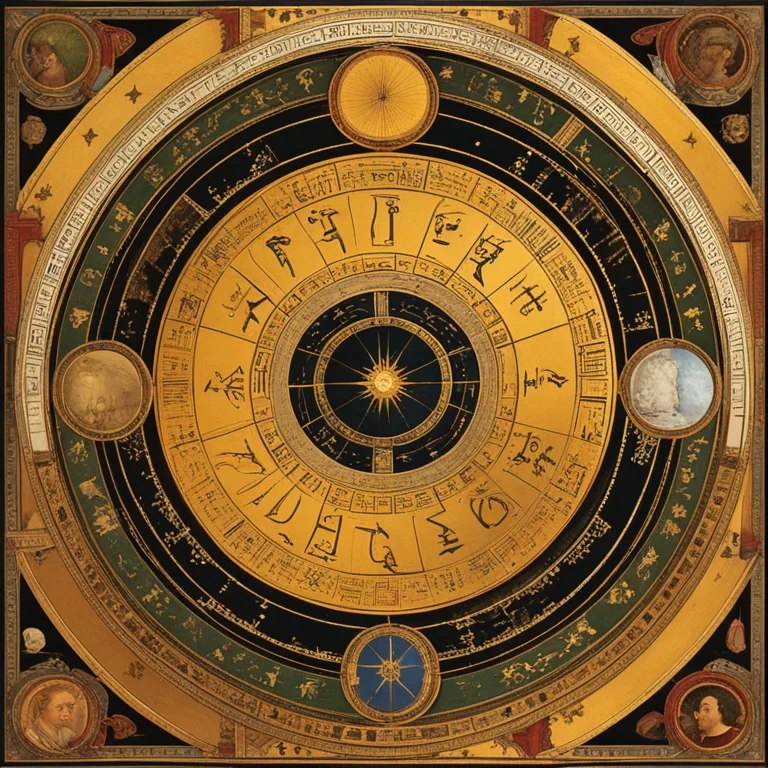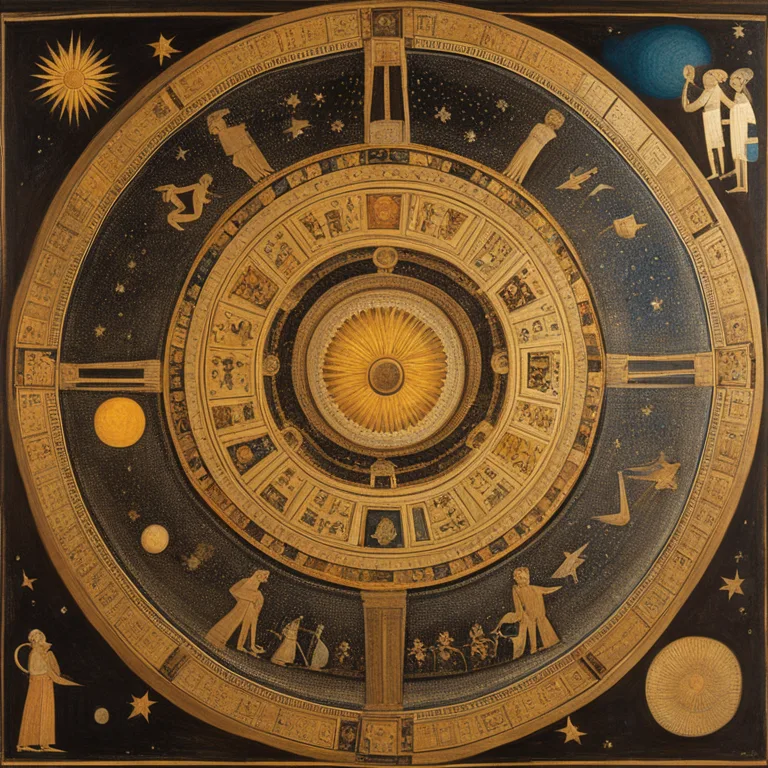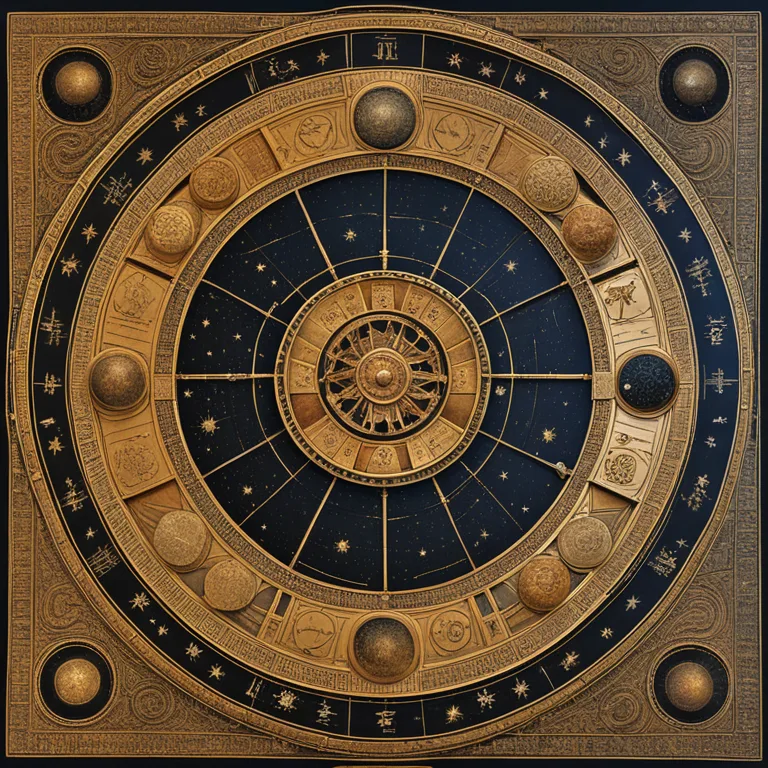
The Origins of Astrology: A Historical Overview
Trace the ancient roots of astrology and discover where this intricate practice began in this comprehensive historical overview.
article by Priya Deshmukh
Ancient Beginnings
The practice of astrology, the study of celestial bodies in relation to human affairs and natural phenomena, is deeply rooted in history. Its beginnings are shrouded in antiquity, stretching back thousands of years. Ancient civilizations like the Babylonians, Egyptians, and Greeks all contributed to the early development of astrology. Long before the modern horoscope columns we read today, these societies observed the skies, documenting celestial patterns and ascribing meaning to them that would lay the foundations for contemporary astrological practices.

Babylonian Influence
Astrology's oldest records date back to the 2nd millennium BCE in Babylon. The Babylonians are credited with creating the zodiac, dividing the sky into sections that correspond to constellations. Their keen astrological observations led to the creation of an organized system that associated specific heavenly events with terrestrial happenings. These original astrologers could predict seasonal shifts and interpret celestial alignments as omens, impacting the decisions of kings and empires.

Egyptian and Hellenistic Contributions
In parallel to the Babylonians, the Egyptians also practiced their form of astrology, with a focus on the star Sirius and its heliacal rise that signified the Nile's annual flooding. It was the Hellenistic world, however, especially after Alexander the Great's conquests, that merged Babylonian astrology with Egyptian tradition, thus giving birth to the horoscopic astrology—casting horoscopes based on the exact time of an individual’s birth—which we are more familiar with today.

Spread and Evolution
As astrology spread through the Greek world, it reached Rome and eventually the whole Roman Empire. Despite fluctuations in acceptance, with some thinkers dismissing it as superstition, astrology flourished, influencing both the public and rulers. By the medieval period, it intertwined with medical studies and natural science, emphasizing its role in everyday life. Arabic scholars later preserved ancient texts, enhancing astrological knowledge and charting techniques, which then flowed back into Europe during the Renaissance.

Modern-Day Astrology
The scientific revolution challenged astrology’s authority mainly due to its non-empirical nature. Despite this, astrology transformed and persisted, growing in popularity during the 20th century. Now, in 2024 and beyond, astrology is experiencing a cultural renaissance. Personal digital readings, online horoscopes, and astrological apps illustrate the burgeoning intersection between technology and the ancient art. Predictions for the year often relate to transiting planets, like Saturn moving into Pisces or Jupiter transiting Aries, and the influence of these shifts on collective trends and personal growth.
Published: 12/29/2023
Modified: 12/29/2023
More predictions
Come back here soon to learn more about yourself and your future


Birth Charts: A Beginner's Guide Explored
Delve into the basics of birth charts, the celestial snapshot of your potential. Learn how they influence personality and life in our beginner's guide.


Your Birth Chart: Cosmic Blueprint Explored
Delve into the insights of your astrological birth chart and discover the cosmic influences that shape your personality, path, and potential.


Asteroids & A Birth Chart: Cosmic Insights
Delve into the role of asteroids in astrology and discover how these celestial bodies influence your birth chart and personal journey.